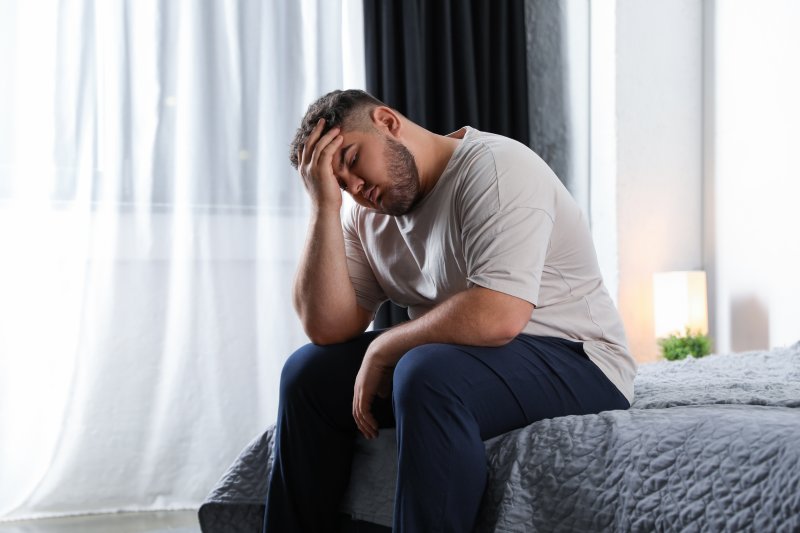
Sleep apnea can be difficult to manage. This sleep disorder results in the sufferer ceasing to breathe repetitively throughout the night. It can result in insomnia, fatigue, and headaches. This can affect day-to-day life and has been associated with depression. Continue reading to learn more about the connection between sleep apnea and depression as well as some of the symptoms you should be keeping an eye out for.
What’s the Link Between Sleep Apnea & Depression?
There seems to be a correlation between sleep and mood, as well as lack of sleep and depression. Some people experience an onset of symptoms from both conditions simultaneously, while others experience the symptoms of sleep deprivation before depression. Both conditions can increase the likelihood of developing the other. Research shows that insomnia is tied to depression and anxiety, and a study showed that approximately 46% of people with obstructive sleep apnea (OSA) have depressive symptoms.
How Do the Symptoms of OSA and Depression Compare?
The symptoms of both of these conditions can overlap in some areas, so it is understandably difficult for people to figure out exactly what’s going on. This is especially the case because depression can be one of the signs of sleep apnea. Here are some of the most common symptoms of OSA:
- Loud snoring
- Waking up abruptly
- Shortness of breath when waking
- Excessive tiredness
- Sore throat
- Dry mouth
- Irritability
These are some of the symptoms that are commonly associated with depression:
- Irritability & frustration
- Feelings of sadness, emptiness, or hopelessness
- Changes in appetite
- Sleep disturbances
- Insomnia
- Difficulty thinking and concentrating
- Headaches
- Fatigue
How Can You Improve Sleep at Home?
Here are some methods that many patients find effective in addressing their sleep apnea symptoms:
- Regular Exercise: This can help you drop excess weight, easing your sleep apnea symptoms.
- Side Sleeping: Sleeping on your back can result in your tongue blocking your airway.
- Limiting Alcohol: Drinking alcohol can worsen depression and sleep apnea.
- No Sleeping Pills: Sleeping pills don’t help with sleep apnea, and they can worsen depression symptoms.
To figure out if you have sleep apnea, you should reach out to your dentist or primary care physician. This way, it can be determined whether or not this sleep disorder could be contributing to your depression or vice versa. By seeking treatment, you can work towards the good night of sleep you deserve and may even reduce your depression symptoms.
About the Author
Dr. Dean Hutto is an experienced dentist who has been working in the field for more than three decades! He earned his dental doctorate from the University of Texas Dental School in Houston and has studied with Dr. Frank Spear at the Seattle Institute. He is also a proud member of the American Academy of Dental Sleep Medicine, Southwestern Society of Oral Medicine, Academy of General Dentistry, and other professional organizations. For more information on sleep apnea or to schedule an appointment at his office in Baytown, visit his website or call (281) 422-8249.
